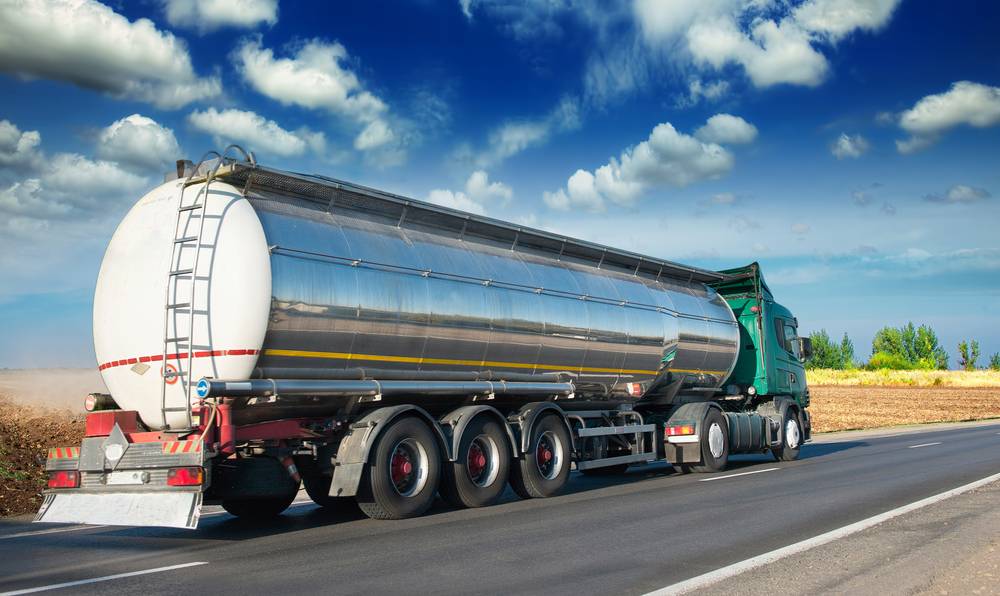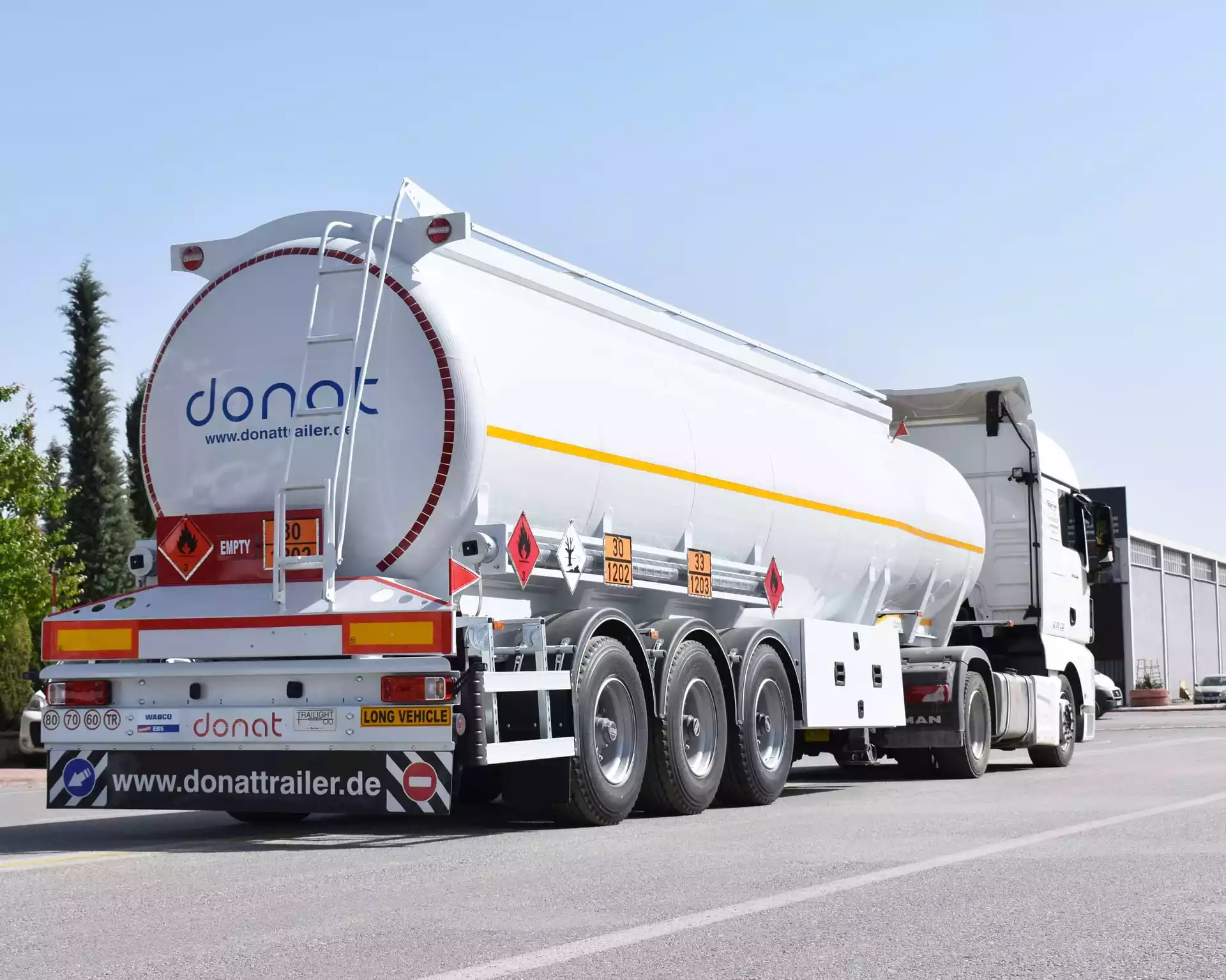Description
The Indispensable Workhorse: A Deep Dive into Road Tankers (Articulated Tank Trucks)
Road tankers, often referred to as articulated tank trucks, are a ubiquitous sight on highways and industrial landscapes around the world. These essential vehicles are crucial for transporting a wide range of liquids and gases, playing a vital role in our modern economy. But beyond their simple appearance, road tankers are complex pieces of engineering designed for safety, efficiency, and specific cargo requirements.
What is a Road Tanker?
At its core, a road tanker is a vehicle specifically designed to transport liquids or gases in bulk. The “articulated” part of the name refers to the vehicle’s construction: a tractor unit (the truck cab) pulls a separate tank trailer. This articulation allows for greater maneuverability compared to rigid tanker trucks, particularly when navigating tight corners or uneven terrain.
Key Components & Design Considerations:
- The Tractor Unit: This is the power source, providing the engine, driver’s cabin, and the necessary connections for braking, lighting, and coupling with the trailer. Tractor units are often chosen for their power and fuel efficiency, given the heavy loads they typically tow.
- The Tank Trailer: This is the heart of the road tanker. Tank trailers come in various shapes and sizes, constructed from materials ranging from aluminum and stainless steel to specialized plastics. The choice of material depends heavily on the cargo being transported.
- Tank Design: The tank itself is often compartmentalized to improve stability and reduce the sloshing effect of liquids during transit. Baffles or internal dividers are used to break up the liquid mass and minimize the risk of the tanker becoming unstable, especially during braking or cornering.
- Safety Features: Road tankers are equipped with a range of safety features, including:
- Emergency Shut-Off Valves: These valves allow for rapid isolation of the tank contents in case of an accident or spill.
- Rollover Protection: Reinforced tank structures and roll-over protection systems are designed to minimize damage and prevent the tank from rupturing in the event of a roll-over accident.
- Anti-Lock Braking Systems (ABS) and Electronic Braking Systems (EBS): These systems prevent wheel lockup and improve braking performance, especially on slippery surfaces.
- Grounding and Bonding: When transferring flammable liquids, grounding and bonding cables are used to prevent the build-up of static electricity which could ignite the cargo.
The Variety of Cargo:
Road tankers are incredibly versatile and can transport a vast array of substances, including:
- Fuel: Gasoline, diesel, jet fuel, and propane are all commonly transported in road tankers.
- Chemicals: Acids, solvents, fertilizers, and other industrial chemicals are transported in specially designed tankers.
- Food & Beverages: Milk, juices, edible oils, and even chocolate are transported in dedicated food-grade tankers.
- Gases: Liquefied petroleum gas (LPG), compressed natural gas (CNG), and other industrial gases are transported in specialized pressurized tankers.
- Water: In some regions, road tankers are used to transport potable water to areas with limited access to water infrastructure.
Regulations and Safety:
The transportation of hazardous materials is heavily regulated to ensure public safety and environmental protection. Road tankers transporting hazardous goods are subject to strict regulations regarding:
- Vehicle Construction and Maintenance: Tankers must meet specific construction standards and undergo regular inspections to ensure they are in safe operating condition.
- Driver Training and Licensing: Drivers of hazardous materials tankers must undergo specialized training and obtain specific endorsements on their commercial driver’s licenses.
- Packaging and Labeling: Cargo must be properly packaged and labeled to identify the contents and associated hazards.
- Routing and Emergency Procedures: Drivers must follow designated routes and be trained in emergency procedures in case of an accident or spill.
The Future of Road Tankers:
The road tanker industry is constantly evolving to meet the changing demands of society. Some key trends include:
- Improved Fuel Efficiency: Efforts are underway to improve the fuel efficiency of tractor units and reduce the overall environmental impact of road tanker operations.
- Alternative Fuels: The adoption of alternative fuels like LNG and electric powertrains are being explored to reduce emissions.
- Smart Tanker Technology: The integration of sensors, GPS tracking, and data analytics is enabling real-time monitoring of cargo and vehicle performance, improving efficiency and safety.
- Automated Driving: While fully autonomous road tankers are still in the future, advancements in driver-assistance systems are improving safety and reducing driver fatigue.
In conclusion, the road tanker is an indispensable workhorse of the modern economy. While often taken for granted, these complex vehicles play a crucial role in delivering the essential liquids and gases that power our industries, fuel our vehicles, and nourish our communities. Their continued evolution, driven by advancements in technology and a commitment to safety and environmental responsibility, will ensure they remain a vital component of our global supply chain for years to come.


